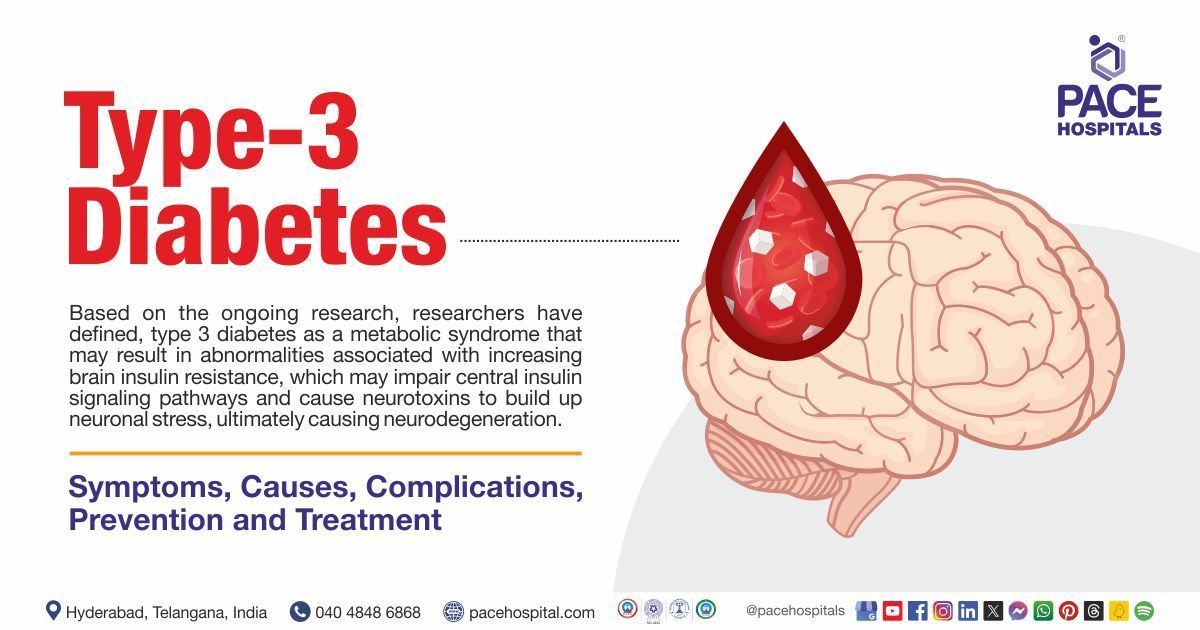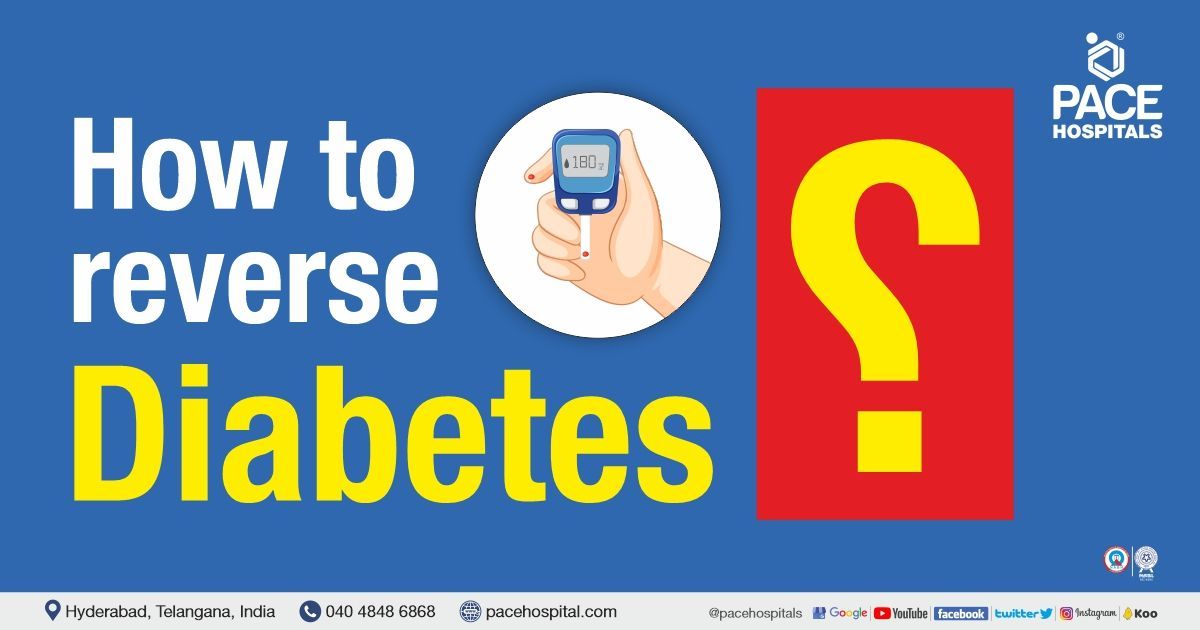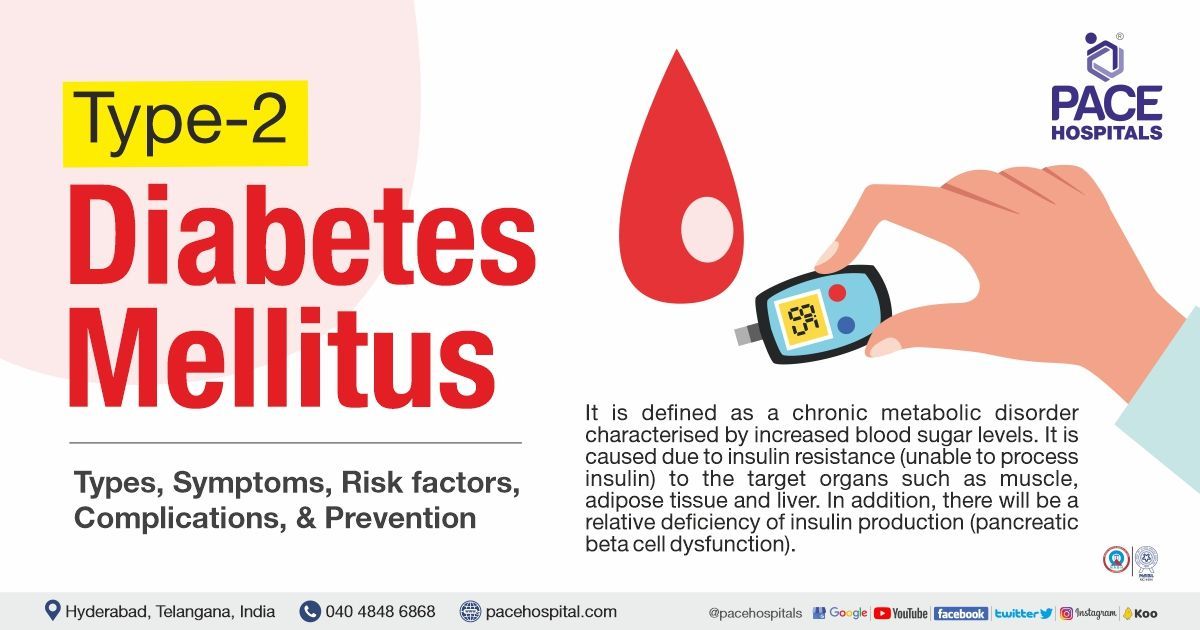Best Diabetic Foot Surgeon in Hyderabad for Advanced Wound & Ulcer Care
PACE Hospitals
✅ Recommended by 9,452 Happy Patients. Get hassle-free online doctor consultation with diabetic foot doctor.
Dr. Tripti Sharma
MBBS, MD (General Medicine), DM (Endocrinology, Diabetes & Metabolism)
Experience : 14+ years
Endocrinologist (Adult & Paediatric), Physician & Diabetologist
Specialist
Human metapneumovirus (HMPV), Coronavirus disease (COVID-19), Hypertension caused by hormonal imbalances, Diagnosing and treating various endocrinology-related health conditions such as thyroid disorders (hypothyroidism, hyperthyroidism, and goitre), diabetes (type 1 diabetes mellitus, type 2 diabetes mellitus, and gestational diabetes), adrenal disorders (Cushing’s syndrome and Addison’s disease), pituitary gland disorders (acromegaly, prolactinoma, growth hormone deficiency, etc.), infertility (male and female), hypertension, obesity, dyslipidaemia, osteoporosis, puberty and growth disorders, polycystic ovary syndrome, hypogonadism, menstrual and other hormonal disorders.
Expertise
Management of Fever of unknown origin, Management of Sepsis & Multiorgan failure, Diabetes mellitus, Hypertension, Thyroid Disorder, Pregnancy Induced Hypertension, Dyslipidemia & hyperlipidemia, Anaemia management, Weight loss & Fatigue Syndromes, HIV treatment, Lung diseases (Asthma, Empyemathorasis, Bronchiectasis Treatment, Interstitial Lung Disease Treatment), Allergy and Immunological Disorders, Anaemia and Blood Disorders, Rheumatology and Joint Related Disorders, COVID-19 / Swine Flu, Endocrinological Disorders, Cardiac problems, Liver & Kidney disorders, Infectious disease, Autoimmune disease, Haematological disorders, Malabsorption syndromes, Weight Reduction management, Diagnostic Dilemmas, Pyrexia of unknown origin (PUO)
Consultation Details
Languages Spoken: English, Hindi, Telugu
Timing: Mon to Sat - 9 AM to 5 PM
Location: PACE Hospitals, HITEC City
Dr. Kantamneni Lakshmi
MBBS, MS (General Surgery), M.Ch. (Plastic Surgery), Fellowship in Aesthetic Surgery
Experience : 11+ years
Senior Consultant Plastic, Reconstructive & Aesthetic Surgeon
Specialist
HMPV, Coronavirus disease (COVID-19), Hypertension, Diabetes, Thyroid Disorders (hypothyroidism, hyperthyroidism, and goitre), Weight loss, Weight gain, Autoimmune diseases and Infectious diseases.
Expertise
Hypertension treatment, Management of diabetes and its complications, fever of unknown origin, thyroid disorders, HIV and Its management, tuberculosis, dyslipidemia, anaemia, asthma, COPD, obesity and lifestyle disorders.
Consultation Details
Languages Spoken: English, Hindi, Telugu
Timing: Mon to Sat - 9 AM to 6 PM
Location: PACE Hospitals, HITEC City
Dr. Lakshmi Kumar Chalamarla
MBBS, DNB (Radiology), PDCC fellowship (Abdominal Imaging), PDCC fellowship (Interventional Radiology), EBIR
Experience : 10+ years
Senior Interventional Radiologist and Abdominal Imaging Specialist
Specialist
Coronavirus disease (COVID-19), HMPV, Hypertension (high blood pressure), Thyroid disorders, Diabetes, Obesity, Weight loss, Infectious diseases, Autoimmune diseases, Immunisation protocols, Anaemia, Cardiac and Renal issues and many other general conditions.
Expertise
High blood pressure treatment and management, Chronic disease management, Treatment of diabetes and its complications, Fever of unknown origin (FUO), thyroid disorders, dyslipidemia, tuberculosis, anaemia, asthma, obesity, COPD, lifestyle disorders, HIV and Its management, innovative treatment approaches and preventive healthcare strategies.
Consultation Details
Languages Spoken: English, Hindi, Telugu
Timing: Mon to Sat - 11 AM to 8 PM
Location: PACE Hospitals, HITEC City
Dr. Mounika Jetti
MBBS, MD (General Medicine)
Experience : 9+ years
Consultant General Physician and Diabetologist
Specialist
Coronavirus disease (COVID-19), HMPV, Hypertension (high blood pressure), Thyroid disorders, Diabetes, Obesity, Weight loss, Infectious diseases, Autoimmune diseases, Immunisation protocols, Anaemia, Cardiac and Renal issues and many other general conditions.
Expertise
High blood pressure treatment and management, Chronic disease management, Treatment of diabetes and its complications, Fever of unknown origin (FUO), thyroid disorders, dyslipidemia, tuberculosis, anaemia, asthma, obesity, COPD, lifestyle disorders, HIV and Its management, innovative treatment approaches and preventive healthcare strategies.
Consultation Details
Languages Spoken: English, Hindi, Telugu
Timing: Mon to Sat - 11 AM to 8 PM
Location: PACE Hospitals, HITEC City
Dr. Sai Ramakrishna O
MBBS, MD (General Medicine)
Consultant General Physician & Diabetologist
Specialist
Human metapneumovirus (HMPV), Coronavirus (COVID-19), Diabetes, Hypertension, Thyroid Disorders, Fever management, Malabsorption syndromes, Headache & Migraines, Obesity, Autoimmune diseases, Anaemia and Blood Disorders, and Infectious diseases
Expertise
Management of Fever of unknown origin, Management of Diabetes mellitus, Hypertension, Sepsis & Multiorgan failure, Thyroid Disorder, Pregnancy Induced Hypertension, Anaemia management, Weight loss & Fatigue Syndromes, Dyslipidemia & hyperlipidemia, HIV treatment, Lung diseases (Asthma, Empyemathorasis, Bronchiectasis Treatment, Interstitial Lung Disease Treatment), Allergy and Immunological Disorders, Anaemia and Blood Disorders, Rheumatology and Joint Related Disorders, COVID-19 / Swine Flu, Endocrinological Disorders, Cardiac problems, Liver & Kidney disorders, Infectious disease, Autoimmune disease, Haematological disorders, Malabsorption syndromes, Weight Reduction management, Diagnostic Dilemmas, Pyrexia of unknown origin (PUO)
Consultation Details
Languages Spoken: English, Hindi, Telugu
Timing: Mon to Sat - 9 AM to 6 PM
Location: PACE Hospitals, Madinaguda
Best Diabetic Foot Specialist in Hyderabad for Comprehensive Diabetic Foot Care
PACE Hospitals is recognised for having the best diabetic foot specialist in Hyderabad, India offering dependable care for people dealing with ulcers, infections, circulation problems, and other diabetes-related foot concerns. Diabetic foot cases here are managed by the combined expertise of the General Surgery, Vascular Surgery, and Endocrinology departments, under the guidance of experienced diabetic foot care doctors who focus on early treatment and long-term protection.
Every diabetic foot doctor in Hyderabad at PACE Hospitals begins with a careful assessment that may include checking circulation, evaluating nerve function, examining wounds, and screening for infection. By understanding the exact condition of the foot, our team can recommend a treatment plan that supports healing and helps prevent further complications.
Our expert diabetic foot specialist doctors provide a wide range of services, from routine wound care to advanced diabetic foot treatment, off-loading support, infection control, and preventive advice. If an operation becomes necessary, patients are managed by the best diabetic foot surgeon in Hyderabad, who performs diabetic foot surgery with a strong focus on preserving limb health, encouraging proper healing, and reducing future risks.
People choose PACE Hospitals for diabetic foot care because of our experienced team, modern facilities, and straightforward, patient-focused approach. We work closely with each patient to support healing, maintain mobility, and encourage long-term foot health with consistent follow-up and thoughtful guidance.
Frequently Asked Questions (FAQs) on Diabetic Foot
What is a diabetic foot?
A diabetic foot refers to complications arising from diabetes, such as peripheral neuropathy and/or peripheral artery disease (PAD), leading to ulcers, infections, or deformities. Poor circulation and reduced sensation increase the risk of injuries, delayed healing, and infections, which can progress to severe complications like gangrene or amputation if untreated. For proper evaluation, you may consult a diabetic foot care specialist Hyderabad, India.
What are the different diabetic foot problems?
Diabetic foot problems include neuropathic ulcers, infections (cellulitis, abscesses), Charcot osteoarthropathy (bone deformity), gangrene, and diabetic foot syndrome. Peripheral neuropathy causes insensitivity to pain, while peripheral artery disease worsens tissue ischemia. These conditions can lead to chronic wounds, infections, or limb-threatening complications if not managed promptly. Such conditions are best managed by an expert diabetic foot care doctor.
Who is the best diabetic foot doctor in Hyderabad?
Our team of diabetic foot doctors in Hyderabad at PACE Hospitals, including Dr. Tripti Sharma, Dr. Mounika Jetti, Dr. Sai Ramakrishna O and Dr. Snigda Panuganti, provides patient-centred care for diabetic foot complications such as non-healing ulcers, infections, numbness, swelling and circulation problems. The team focuses on early diagnosis, diabetes control, wound care, infection treatment and preventive foot care to support faster healing and reduce complications.
For advanced or surgical cases, Dr. Kantamneni Lakshmi and Dr. Lakshmi Kumar Chalamarla, recognised among the best diabetic foot surgeons in Hyderabad, offer limb-saving procedures, vascular evaluation, debridement, reconstructive surgeries and advanced wound care to help preserve mobility, foot function and comfort.
Why do people with diabetes develop foot problems?
Chronic high blood sugar damages nerves (neuropathy) and blood vessels (angiopathy), reducing sensation and circulation. This increases the risk of unnoticed injuries, poor wound healing, and susceptibility to infections. Additionally, immune system impairment in diabetes makes it harder for the body to fight off infections, further complicating foot health. A good diabetic foot doctor can help assess these risks early.
What are the early signs of diabetic foot problems?
Early signs include numbness, tingling, burning sensations, dry or cracked skin, loss of temperature sensation, the development of calluses, and minor cuts or blisters that heal slowly. Reduced vibratory sensitivity (tested via tuning fork) or diminished reflexes may also indicate nerve damage. Prompt recognition of these signs can prevent complications like ulcers or infections. These symptoms should be reviewed by a diabetic foot specialist doctor in Hyderabad, India
What causes foot ulcers in diabetes?
Foot ulcers result from prolonged pressure on insensitive skin due to neuropathy, trauma from ill-fitting shoes, or foot deformities such as bunions. Poor circulation due to peripheral artery disease can delay healing and increase the risk of infection. Repeated friction or unrelieved pressure points can cause skin breakdown, leading to open sores that may worsen without treatment. A diabetic foot ulcer specialist can help prevent such ulcers from worsening.
Can a diabetic foot ulcer heal on its own?
Unlikely. Diabetic ulcers require medical intervention due to impaired healing caused by neuropathy, peripheral artery disease, and hyperglycemia. Treatments such as debridement, offloading devices (e.g., specialised footwear), and infection control are essential for recovery. Without proper care, ulcers often worsen and may lead to severe complications like gangrene or amputation. It is important to consult the best doctor for diabetic foot in Hyderabad, India for timely treatment.
What happens if a diabetic foot ulcer gets infected?
An infected ulcer can lead to cellulitis (a soft tissue infection), abscess formation, osteomyelitis (a bone infection), or sepsis (a life-threatening systemic infection). If untreated, it may cause gangrene or necessitate amputation. Severe infections increase mortality risks significantly and require urgent medical attention with antibiotics or surgical intervention. Such cases must be handled by a diabetic foot wound doctor.
Can diabetic foot ulcers come back after healing?
Yes. Recurrence rates are high (up to 40%) due to persistent neuropathy, poor foot care practices, inadequate footwear, or unresolved vascular issues. Preventive measures like regular monitoring, proper footwear, glycemic control, and avoiding trauma are critical for minimizing recurrence risk after healing. Follow-up with the best diabetic foot specialist in Hyderabad helps reduce recurrence risk.
Is diabetic foot life-threatening?
Yes. Severe infections from untreated ulcers can lead to sepsis—a life-threatening condition—or other complications like gangrene requiring amputation. Mortality rates increase significantly in advanced cases without timely medical intervention. Proper wound care and glycemic control are essential for preventing life-threatening outcomes. Immediate care from the best diabetic foot surgeon in Hyderabad, India is crucial in severe cases.
Is surgery ever needed for diabetic foot problems?
Yes. Surgery may be required for debridement of necrotic tissue/infected wounds, drainage of abscesses, revascularisation procedures for peripheral artery disease (e.g., angioplasty), correction of deformities (e.g., Charcot reconstruction), or amputation in advanced cases where limb salvage is not possible. Surgical intervention should be performed by a top diabetic foot surgeon in Hyderabad at PACE Hospitals.
Can diabetic foot be cured permanently?
No, permanent cure exists because underlying conditions like neuropathy and peripheral artery disease persist in diabetes. However, strict glycemic control, regular monitoring, preventive care measures (e.g., therapeutic footwear), and timely treatment can effectively manage symptoms and prevent severe complications. Long-term management requires guidance from a diabetic foot care specialist.
Does everyone with diabetes eventually get foot ulcers?
No, not everyone with diabetes will develop foot ulcers, but the lifetime risk is significant, estimated at 19% to 34%. However, good foot care and proper diabetes management can significantly reduce this risk. Regular screening by a foot diabetes doctor can help prevent ulcers.
How does someone know if they have poor circulation or nerve damage in their feet?
Neuropathy symptoms include numbness, tingling, burning pain at rest (especially at night), or insensitivity during the 10-g monofilament test, also known as the Semmes-Weinstein monofilament test (SWME). Poor circulation manifests as cold feet, absent pulses in the dorsalis pedis or posterior tibial arteries, delayed capillary refill (more than 3 seconds), leg cramping during walking (claudication), or non-healing wounds. These conditions should be diagnosed by the
best diabetic foot doctor in Hyderabad, Telangana, India.
What kind of daily foot care routine should a diabetic follow?
Diabetics should follow a daily foot care routine that includes daily inspection for cuts or sores, washing their feet with warm water and mild soap, drying them thoroughly, moisturising (but not between toes), wearing clean, dry socks, and trimming their toenails carefully. A
diabetic foot care specialist can provide personalized foot-care guidance.
What type of shoes should people with diabetes wear?
Diabetics should wear therapeutic footwear with custom orthotics to reduce pressure points and prevent injuries. Shoes should be well-fitted with a wide toe box and cushioned soles. Avoid tight-fitting shoes or high heels that can cause friction or pressure-related injuries. Advice can be taken from a
diabetic foot specialist doctor in Hyderabad, India.
What is gangrene in diabetes?
Gangrene is tissue death caused by severe infection or critical limb ischemia due to impaired blood flow in diabetes. It appears as blackened tissue with foul odor and may require urgent surgical intervention, like debridement or amputation, to prevent life-threatening complications such as sepsis. Severe gangrene cases should be handled by the
best diabetic foot surgeon in India at PACE Hospitals, Hyderabad.
Can a diabetic foot lead to amputation?
Yes. Diabetic foot complications like severe infections, gangrene, or non-healing ulcers are the leading causes of non-traumatic amputations worldwide. Early detection and management can significantly reduce amputation risks by preventing the progression of wounds and infections. For limb-salvage care, visit the
top diabetic foot specialist in Hyderabad at PACE Hospitals.
Which doctor should I consult for diabetic foot problems?
You should consult a diabetic foot specialist, usually a general surgeon, podiatrist, or vascular surgeon experienced in foot ulcer treatment and wound care. At PACE Hospitals, our team includes specialists across endocrinology, surgery, vascular medicine, and plastic surgery to provide integrated diabetic foot care. Many patients prefer the
best doctor for diabetic foot treatment in Hyderabad at PACE Hospitals for expert care.
What is the difference between a diabetologist and a diabetic foot surgeon?
A diabetologist focuses on managing diabetes and its systemic complications, including neuropathy and poor circulation. A diabetic foot surgeon treats physical manifestations like ulcers, gangrene, or infections requiring debridement, reconstruction, or limb salvage surgery. Both work together to ensure successful outcomes. For surgical needs, consult the
best diabetic foot surgeon in Hyderabad, India.
Can I visit PACE Hospitals without a referral for diabetic foot treatment?
Yes. You can directly book an appointment with our best diabetic foot care doctors in Hitech City or Madinaguda. Walk-in consultations are also available for urgent cases involving infections, wounds, or suspected gangrene.
How do PACE Hospitals’ doctors manage complex diabetic foot cases?
Our team uses a multidisciplinary approach, involving diabetologists, surgeons, vascular and plastic specialists, physiotherapists, and wound care nurses. Treatment may include surgical debridement, advanced dressings, vascular intervention, or reconstructive surgery — all coordinated for the best outcomes.
How do I know if the doctor I’m seeing is a specialist in diabetic foot care?
At PACE Hospitals, our diabetic foot specialists have extensive training in wound healing, foot surgery, and diabetic limb salvage.
What our patients have to say
Related Resources
Why choose PACE Hospitals?
- A Multi-Super Speciality Hospital.
- NABH, NABL, NBE & NABH - Nursing Excellence accreditation.
- State-of-the-art Liver and Kidney transplant centre.
- Empanelled with all TPAs for smooth cashless benefits.
- Centralized HIMS (Hospital Information System).
- Computerized health records available via website.
- Minimum waiting time for Inpatient and Outpatient.
- Round-the-clock guidance from highly qualified super specialist doctors, surgeons and physicians.
- Standardization of ethical medical care.
- 24X7 Outpatient & Inpatient Pharmacy Services.
- State-of-the-art operation theaters.
- Intensive Care Units (Surgical and Medical) with ISO-9001 accreditation.
Share on
Request an appointment
Fill in the appointment form or call us instantly to book a confirmed appointment with our super specialist at 04048486868
Appointment request - health articles
Recent Articles



















